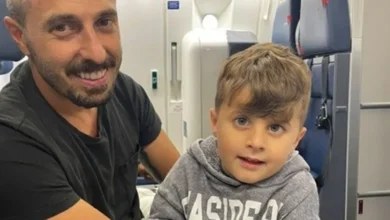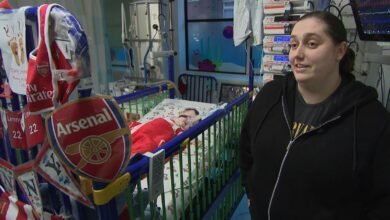Four-Year-Old Diagnosed with Childhood Dementia, Mum Speaks of Heartbreak

A Swansea mother says her “heart is broken” after her four-year-old son, Tate, was diagnosed with Sanfilippo Syndrome Type A, a rare, neurodegenerative condition often referred to as childhood Alzheimer’s or childhood dementia.
Children with this illness gradually lose essential skills, including walking and eating, and are not expected to survive into adulthood.
Tate, who is non-verbal and was diagnosed with autism at age two, underwent MRI imaging this year that showed brain changes linked to dementia. The formal diagnosis was made at Noah’s Ark Children’s Hospital in Cardiff.
With no cure currently available, Tate’s mother, Tammy McDaid, has launched a fundraising campaign to reach £11,000 so her son may participate in clinical trials abroad aimed at slowing the disease’s progression. She said her priority is making memories with her “handsome little man.”
Tammy described Tate as a joyful child who loves to run and climb, abilities she fears will decline. She hopes trials may delay his mobility loss, saying, “He could climb before he could walk. I just want him to be able to do this for as long as possible.”
Doctors have warned that Tate could begin deteriorating as early as age five. With his fifth birthday approaching, Tammy says, “I don’t have time to waste.” If he is not accepted into a trial, she hopes to use donations to travel with him and create meaningful moments together.
More than 140 children in the UK are living with Sanfilippo Syndrome, according to the MPS Society. Tammy is also working to raise awareness ahead of World Sanfilippo Awareness Day this Sunday, urging parents to seek support and highlighting how both she and Tate’s father unknowingly carried the gene.
Community support and donations have offered her renewed hope, with help also coming from Ty Hafan children’s hospice.
Tate’s story underscores the essential rights of children, particularly the right to the highest attainable standard of health, access to timely diagnosis, care, and treatment. It highlights the importance of ensuring children with rare, life-limiting conditions receive compassionate medical support, early intervention, and opportunities to benefit from emerging therapies.





